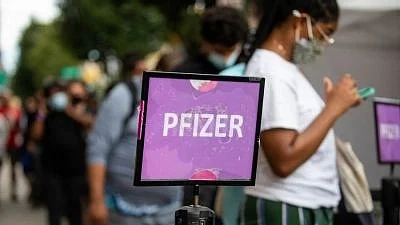Findings published in the medical journal Lancet show that two jabs of the Pfizer vaccine are “highly effective” at preventing hospitalisations for a minimum of six months, while at the same time, its effectiveness in preventing infections fell from 88 percent to 47 percent six months after the second jab, The Guardian and Reuters reported.
The vaccine's ability to prevent hospitalisations not only remained quite high at 90 percent, but also across the different variants, including the delta variant.
These findings are important not only because they underscore the need for faster vaccination rates all over the world, but also because this data will be considered by health organisations while deciding the need for booster shots, according to the Reuters report.
Professor Penny Ward, who currently works at King's College London, also spoke about the importance of this data, saying that "if the objective of vaccination is to prevent illness and prevent continued spread of infection, the information suggests need for boosters six months after completion of the first vaccine course, particularly among the most vulnerable", added The Guardian.
The conclusions of the study confirm what the initial reports from the US Centers for Disease Control and Prevention and the health ministry of Israel had already suggested, which is that the protection against the virus which Pfizer provides, reduces within half a year.
(At The Quint, we question everything. Play an active role in shaping our journalism by becoming a member today.)
